Let me ask you this question: Do you know where ALL your essential business documents are? These relevant business documents should be stored in a secure location, such as a designated space in your home or business office, for easy access when needed. Although you may not access them frequently, it’s essential to have them organized and gathered together. While your business can run without some of these documents most of the time, you may need to refer to them once or twice each year. This post shares all the essential document types you need to organize for a well-organized business.
These documents should be stored in a fireproof (affiliate) safe (affiliate). Secure from any water issues as well. While they are probably papers, consider them valuable records, like jewelry, for your business. While the jewelry in your home has a safe (affiliate) place, so should your business documents.
If you don’t, check out the important personal documents posted from our site blog, Sabrina’s Organizing.
Topics discussed
- Benefits of organizing these crucial documents
- All payroll-related documents
- Corporation Paperwork and Seal
- Employee Personnel Files
- Checkbook and any financial statements
- Insurance Documentation and Policy Packets
- Petty Cash on Hand and Tracking Sheet
- Online Log In Information and Password
- Accounts Receivable and Accounts Payable Documents
- Tips
- How to Create a Business Procedure List?
Benefits of organizing these crucial documents
There are many benefits to organizing these critical documents. Below are just some of them.
- One significant benefit of having these important documents organized and stored in a safe (affiliate) place is the peace of mind that comes with knowing where everything is in the event of an emergency.
- It also helps to protect your business and your client’s privacy. No one wants to have to deal with a breach. And no one wants to inform their client about a security breach.
- Keeping files secure will help you know you have everything if you have to evacuate in case of natural disasters.
Here is a list of 8 essential documents every small business owner needs to find easily:
All payroll-related documents
When I say payroll-related documents, they include login and Password Information, Account numbers, quarterly and Yearly reports, and Payment Details. Everything in my post How to Create a Well-Organized Small Business Bookkeeping Binder.
When compiling your login and passwords, include account numbers and website addresses. Using spreadsheet software like Microsoft Excel is a great place to start. Be sure to password-protect your file. Create a password that doesn’t relate to any of your payroll passwords.
You can use the business version of a Password Manager app like LastPass and share it with your other employees if you prefer.
Corporation Paperwork and Seal
You likely have paperwork related to your business, whether it is an LLC or an S corporation. Be sure to keep these papers in a secure location.
This usually comes in a packet of legal papers your lawyer may have given you. Ensuring all these papers are together is crucial if you need to update new board members.
Employee Personnel Files
This would include quite sensitive information. It includes your employees’ social security numbers, addresses, and other details about them and their personal business. Store this in a safe/locked cabinet, organized alphabetically by the employee. It makes it easy to update if you have an established system for your employee files.
Checkbook and any financial statements
All your checking and credit card account statements should be stored in the same place. Keeping the extra checks and other preprinted deposit slips in a secure location where they are not visible will help protect you from account theft.
Insurance Documentation and Policy Packets
Liability documents, auto insurance, and other essential documents should always be placed together and stored away. It doesn’t need to be in the filing cabinet (affiliate) near your desk (affiliate). Saving them in a fireproof (affiliate) locked cabinet works fine.
Petty Cash on Hand and Tracking Sheet
A lockbox stored inside the desk (affiliate) drawer works well for petty cash. Not many people have petty cash on hand, but if you do, these items should be secured in an area that is mounted to the wall and locked.
Online Log In Information and Password
Setting up a password app or creating a paper copy of your passwords works fine if you update the information regularly. As a business owner, you likely have numerous passwords. So, please write them down and keep the list safe. You don’t need to keep it in your head all the time.
Accounts Receivable and Accounts Payable Documents
This information typically includes sensitive details about your clients (affiliate). Keeping this safe with a separate password for each software file you use is an excellent way to protect your client’s data. If you use client credit card information, consider keeping it in a secure filing cabinet (affiliate) out of sight.
Tips
Below are several tips to help you gather all this information seamlessly.
- Be sure to inform at least one other person where these documents are located, so if you are unable to access them, they will be able to find them. A close family member works. Also, you should inform them of where you store the items and how to access the secured area.
- Fireproof (affiliate) boxes are ideal for use in a home or office, providing peace of mind in case of an emergency.
- If you have these documents digitally, store them in at least two separate locations. A backup of them in your office and another off-site location works best. The IRS will require you to reassemble the lost receipts if you have a fire or flood, so setting a plan to keep these documents in different places will help you immensely. These items should be stored in a secure password-protected file folder to protect the sensitive information.
- Develop a business procedure outlining the process for storing these documents. When creating the procedure list, it doesn’t have to be too detailed. I can help you with that. Please check out my SMB Process Improvement service.
How to Create a Business Procedure List?
When I talk about a business procedures list, I am referring to a method for remembering what needs to be included in these business documents and how they should be organized for easy access. Below are tips on how to create these procedures.
- Including a list of steps to where things need to be stored is sufficient.
- Then, a list of what needs to be stored. And where the backups will be placed in your office and off-site.
- And lastly, the steps you need to take when you create the backup.
It can be placed in a cloud file. Or on an internal server where everyone who uses these document files can reference them.
I hope you take the time to gather these documents and store them properly to help you keep track of your essential documents. Here is a free checklist below that you can print as a reminder.
Below are posts that discuss the essential documents to keep in your small business.
What kind of records should I keep
Organizing Your Important Documents
And don’t forget to read more about paper management on our blog.
Please note these are affiliate links through Amazon (affiliate), and at no additional cost to you, I will earn affiliate fees if you decide to make a purchase.
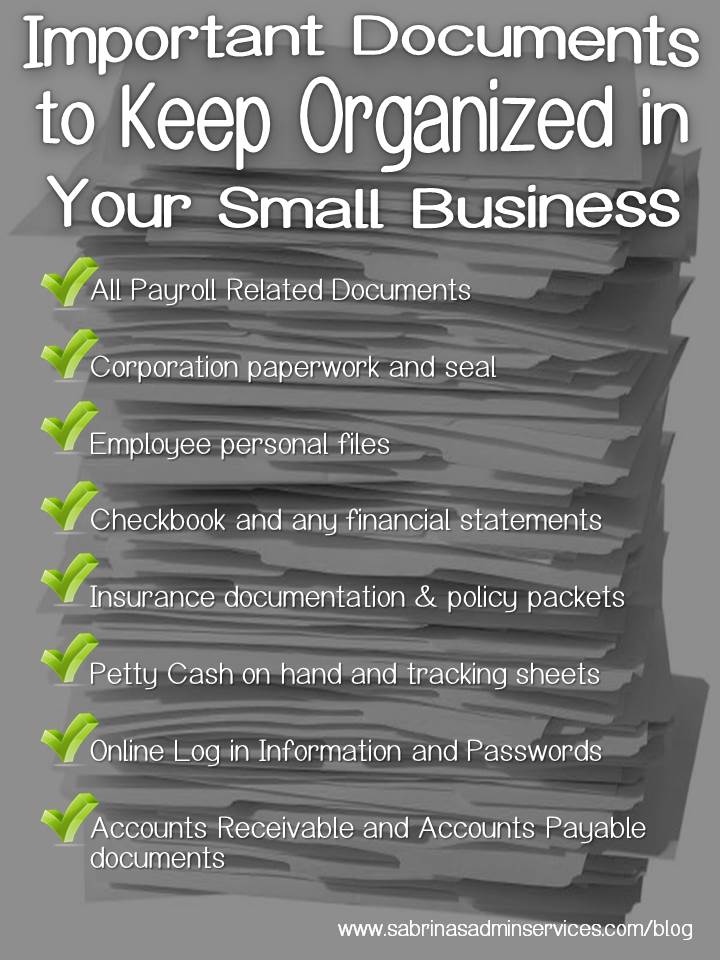
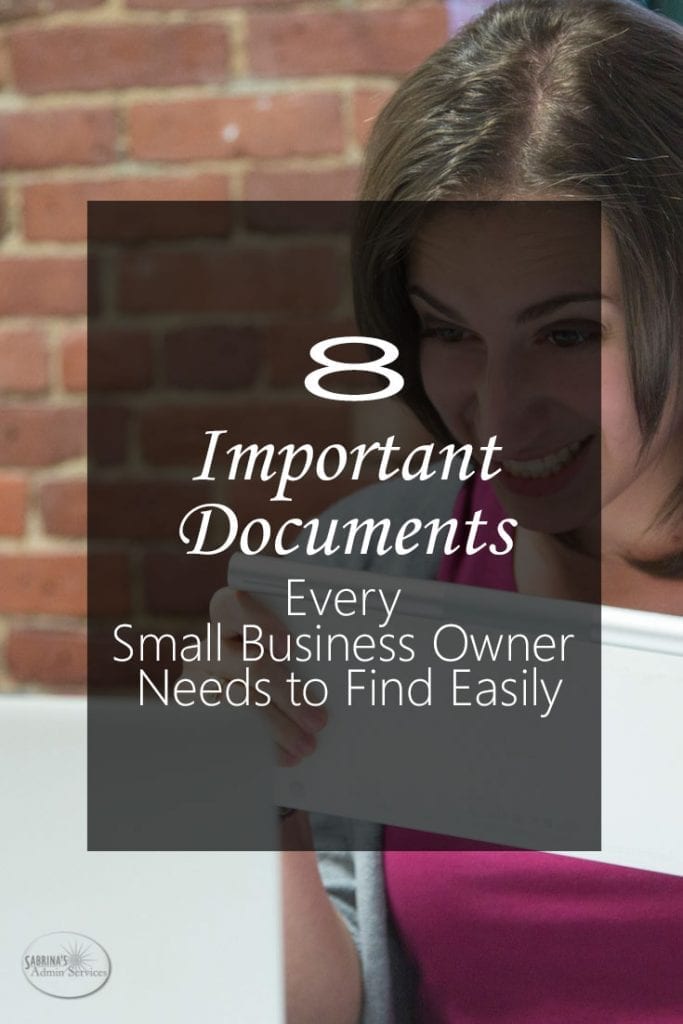
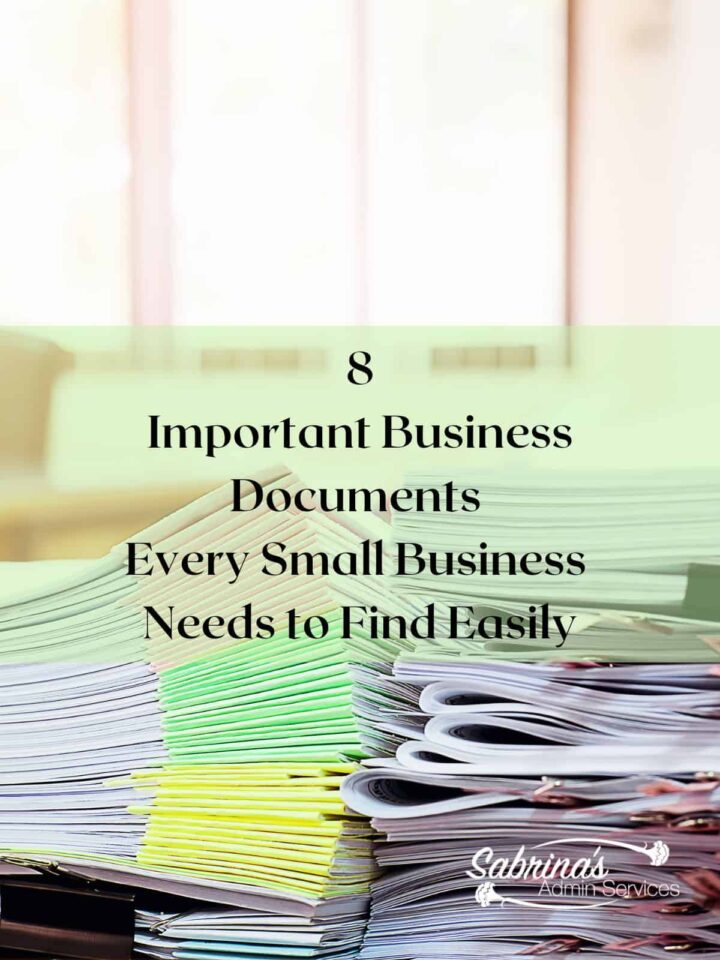


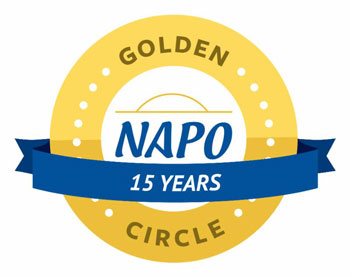

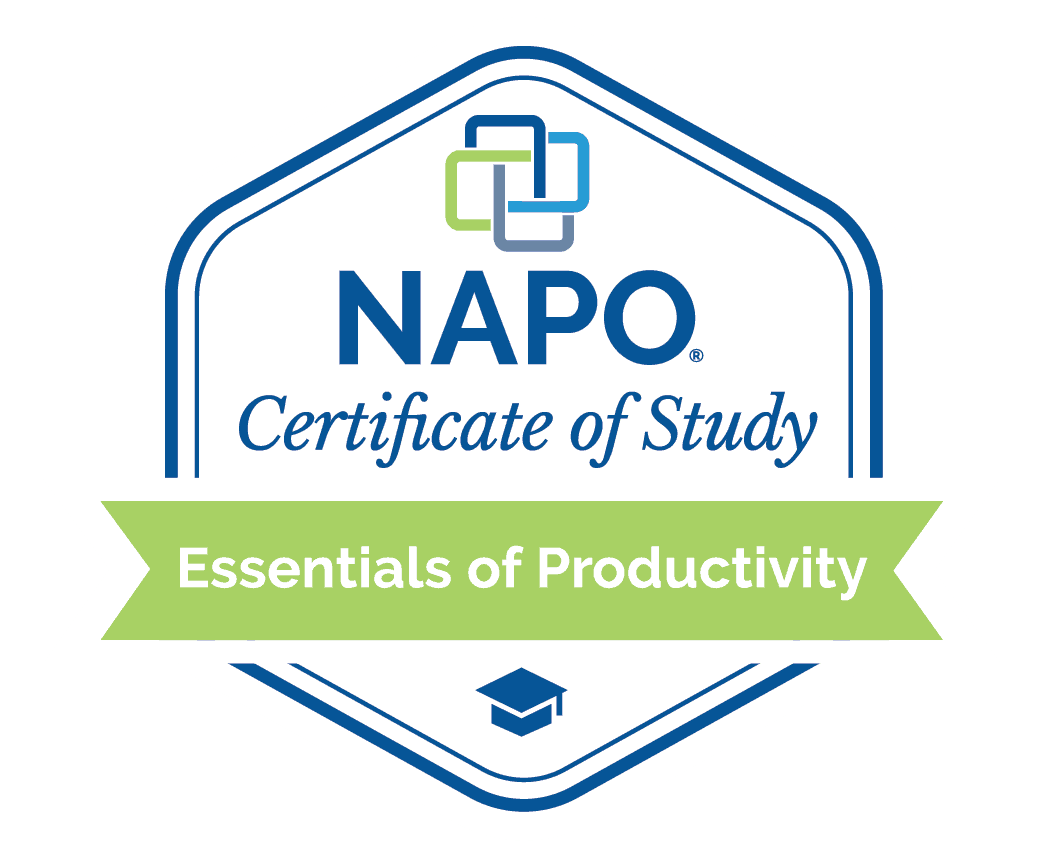
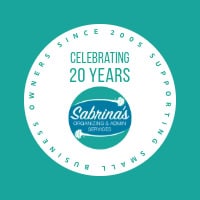
I have a habit of going through all my files, accounts, and passwords in November/December. The idea is to get myself set up for the next year with any new fils/folders and removing anything I know I won’t need going forward. This helps me keep everything current and in reasonably good order. It also helps me to identify that which I don’t have. Thank you for this great list of things I need to put together for my business.
I was relieved that most of these do not apply to my VERY small business, and reassured to know I’m covered where I need to be. Since my husband worked with me for most of the time I’ve been in business, he’s also aware of what I do and where I keep things, so that’s good too!
A great reminder to make sure that all documents are findable by someone else if necessary. While I know where everything is it might take a bit of a search for someone else to find.
Putting this on my to do list now.
However organized I might be, there is always room for improvement. Reading your list and process highlights this for me again. Making sure someone else knows where to find things is essential. While I know where everything is, that’s not enough.
Thank you for the reminder.
I agree, Linda. It’s always good to recheck where everything is and ensure that everything is in the right place.
Reading this reminds me that even though I am a very small business, it is a wise idea for me to document my process. If anything happens to me, it will be very helpful to whoever has to come in (probably my husband), and resolve everything!
I’m a fan of the firesafe box as well.
Since I don’t have employees, that makes it a bit easier for me. I’ve been hearing from friends who have lived through natural disasters about the need for receipts. Otherwise, you get very little.
I totally agree, Seana. We often forget, day in and day out, what we do and what our spouses do not realize we do, especially in our business. Sharing this information is so important. I got into the habit of reviewing my systems and documentation during the month of September, as it is National Preparedness Month. It works well. I also get to catch up with my husband and find out anything new that he’s changed in the last year. It’s a win-win. Thanks for stopping by and commenting. I really appreciate it.